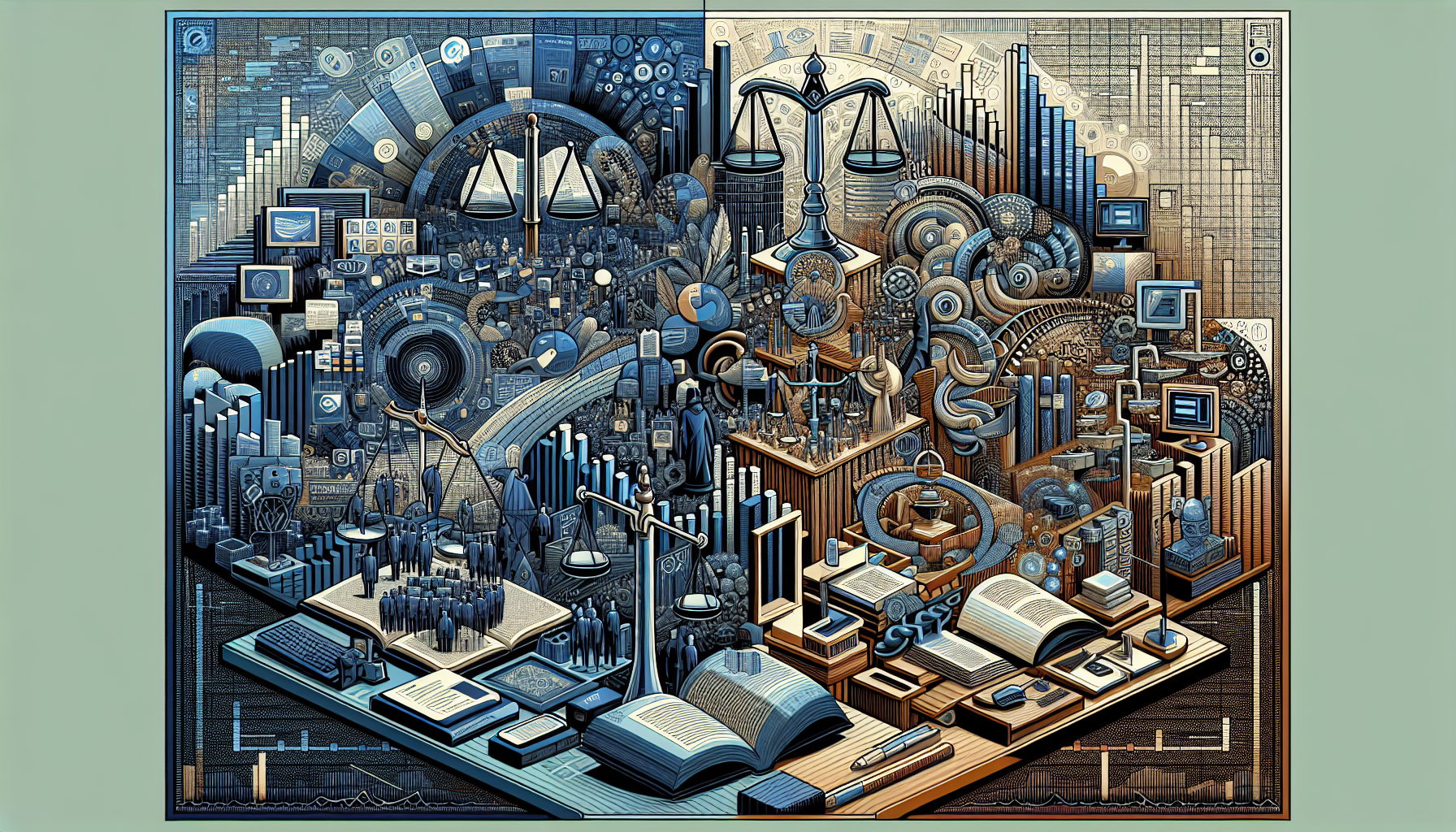Companies in China today spend a lot of money to hire native English language experts, and yet continue to produce a steady stream of mangled Chinglish. Huawei, Tencent and Alibaba were both classic case studies viewed from the outside up to around 2018-2019 where each company’s localization efforts failed over and over wasting huge amounts of money, and even raising fears of a hostile Chinese takeover, leading to national security blacklists. I’ve done some detective work on the phenomenon and asked various insiders about the situation, and the firms don’t seem to exhibit the problem as seriously anymore, but a host of other companies in China seem to exhibit the problem. A key reason why these companies keep getting themselves into huge trouble abroad despite onboarding so many native English-speaking employees, is down to that in their language service departments, they reject the knowledge hierarchy principles and instead apply a hierarchy of power.
The knowledge hierarchy concept was pioneered by economists Garicano and Hubbard and is explained in more depth in this article. The authors sum up the implications as follows:
“The logic underlying a knowledge hierarchy is fairly straightforward: if a manager possesses a high level of skill and institutional knowledge, the firm can leverage this skill and knowledge by allowing him or her to delegate routine work to coworkers with less knowledge. Knowledge hierarchies, then, represent a form of “management by exception,” where only nonroutine problems require managerial attention.” As described in the longer articles by the authors, this also involves supervision, training, and standard setting from the top of the knowledge hierarchy down to the bottom. Lots of knowledge leverages an ‘economy of scale’ for an organization, which helps the organization be a lot more successful, and therefore the most knowledgeable people are paid the most. I also point out the obvious, the opposite of a knowledge hierarchy is a system where amateurs suffering from Dunning-Kreuger Effect are put in charge of experts and can order experts around.
Hierarchies based on power are common to basically every society, even the society of chimpanzees is based to some extent on the presence of an alpha male who lords over the others. Everyone wants power for themselves, even if this is to the detriment of the organization. In the Middle Ages, the Chieftain and Elders based social model gave way to a caste system organized around King, Nobility, Knights, and Peasants. The King was often no better a decision maker than any random person in the society, but nonetheless held sway solely on the basis of bloodline. Translators in China’s translation companies (and probably everywhere else), have very much carried forward the ancient instincts of the alpha male into their profession.
Example Hierarchy of Power
The previous and perhaps current models of Tencent and Huawei are good illustration of this phenomenon. Around when Tencent made its failed 2016 North American launch, according to various leaked rumors from insiders, the company established a system of internal reviewers who were in the position to hire translators from a Chinese translation company to perform translations for them, and the internal translators’ position was of gatekeeper, exerting control over the external translators. These translators often had very mediocre credentials themselves, and their promotion and job status could be determined more by office politics than professional ability. Indeed, translator performance management tends to be a matter of assessing peer ratings or business people’s subjective satisfaction. In the case of companies in China such as Huawei, Tencent and Alibaba, this largely meant that a company with a Chinese founder, and a Chinese executive team, would hire a department of translators who is 100% Chinese, each of them fighting and battling in office politics for supremacy. That’s hardly unusual for companies in general, but special factors related to translation could cause huge problems.
The special factor for these companies from China, is that the number of linguists fluent in Chinese coming from the target language country, in this case North America and the UK, are very small in number. Around the time of the Tencent and Tmall launches, it was around 7 people working for businesses, and while a large number of people had been learning Chinese at the time, they seemed to have departed for other fields such as sinologists, literary translators, and government. The power imbalance between these seven or so translators and these companies was absolutely vast and pursuit of a hierarchy of power status through office politics made it worse.
Consider just the starting point in the power imbalance. The translator for one of these companies is usually completely isolated from their peers or colleagues, working over the internet and in contact with the company (often through a Chinese translation company). The company would determine the workflows entirely. This often meant having college interns somewhere do the first translation version, and having a document “fall out of the sky” and sent to the translator for revision. They would often use extreme time boxing and deadlines, with perhaps 8,000 words of broken English to clean up in a day. The translation department also would send out glossaries with pseudoscientific 1-to-1 matches of terms to its native English translators for words with one-to-many matching relationships, and glossaries for that matter contained numerous bizarre invented Chinglish terms. If a native English-speaking employee were to object, they would simply respond “You don’t understand WeChat/Alibaba/Huawei/[Otherbigcompany] and you don’t understand China, so you have that opinion.” At this point if they press further, blackballing or termination is likely. Another tactic would be to use “mushroom management”: simply keep the potential objector in an information vacuum, minimizing exposure to information, in order to more thoroughly suppress their capacity for dissent. This should raise a logical question: why hire non-Chinese collaborators if you are going to simply force them to act and perform exactly like a Chinese person?
The traditional studies on caste systems, power relationships, and alpha male chimpanzees provide a clue in my opinion—humans crave power for themselves and will do it corruptly and selfishly, if need be, but will also rationalize their behavior. In a knowledge domain, a person who can establish themselves at the top of a hierarchy can maximize their personal power, job stability, and income. Their personal social prestige is also maximized. In very extreme examples you saw something like ancient caste systems where a priestly caste spinning fairy tales established primacy over society. In knowledge occupations, a sham professional also believing in their own fairy tales can achieve supremacy within their own company’s office politics hierarchy.
Fixing Translation Knowledge Hierarchies
There is a very simple solution to the problem for language services departments, which can be found in the legal services industry where genuinely knowledgeable attorneys supervise associates. The idea as described above, is a hierarchy of knowledge. In the context of translation, establishing a proper hierarchy of knowledge requires considering what knowledge is and how it credibly forms. The traditional idea that years of experience equals knowledge and expertise is false. A lot of these people have done nothing but copy and paste machine translation for decades. Many other people have done a little bit of 50 different specializations without really mastering any one of them, and the notion they would be an expert in anything is unrealistic. In medicine, you rarely see the same person being a brain surgeon and a heart surgeon, but many translators do claim to be neuroscience, software engineering, and trademark law experts simultaneously.
Real expertise does include years of experience, but also includes specialization, and actual accumulated knowledge. The actual knowledge can be demonstrated in a variety of ways, and for younger people this can include things like certifications but also publications. In most professions, a “master” will work with numerous apprentices, perhaps as many as four or five, and provide them with key missing knowledge in order to do work. In a law firm for example, an associate will draft a contract or brief to the best of their ability, and then get feedback from a partner on corrections to make. A relatively small percentage of a brief will require obscure or uncommon knowledge, thus not requiring a lot of effort from an expert. Secondly, in a hierarchy of knowledge arrangement, the document moves from the less-experienced side of the pool and then upwards towards masters, who get feedback. The situation seen in many of the big tech companies with failed international launches or even big scandals, did the exact opposite: institutionally, they hired masters or experts to do translation, and the work product moved down the pyramid towards the bottom, where novices would be responsible for forcing their opinion on the document. This behavior is totally human and normal: even in a corporate translation department now using a hierarchy of expertise, it’s not uncommon for a junior translator doing final quality assurance to undo most or all of the expert recommendations. Translation is a field where very strong opinions develop very quickly, and people tend not to draw blanks on novel questions.
Translator associations such as ATA and CIOL could also do more to encourage hierarchies of expertise in the same way medical or lawyer associations do. For example, lawyers can be Certified after many years of experience, but they also have an initial practice certification, that being a license, which is earned after years of education and internship. Translator associations tend to recognize either expertise or basic qualification, but not both, moreover they provide no framework or even encouragement for traditional master-apprenticeship systems. The situation in translators’ associations I believe, emphasizes that the problem I describe is probably global in nature, and the reason companies in China encountered such huge disasters is because the Chinese<>English language pair is among the hardest, but we can find huge language gaffes in English translations between Spanish or German. Ironically, despite turning expertise on its head in the localization sphere, China is the country with one of the strongest master-apprentice traditions in the world, as made famous by all those Kung Fu movies, and perhaps has the strongest potential to be a thought leader in high-performance translation language standards, starting with the Hierarchy of Knowledge.

